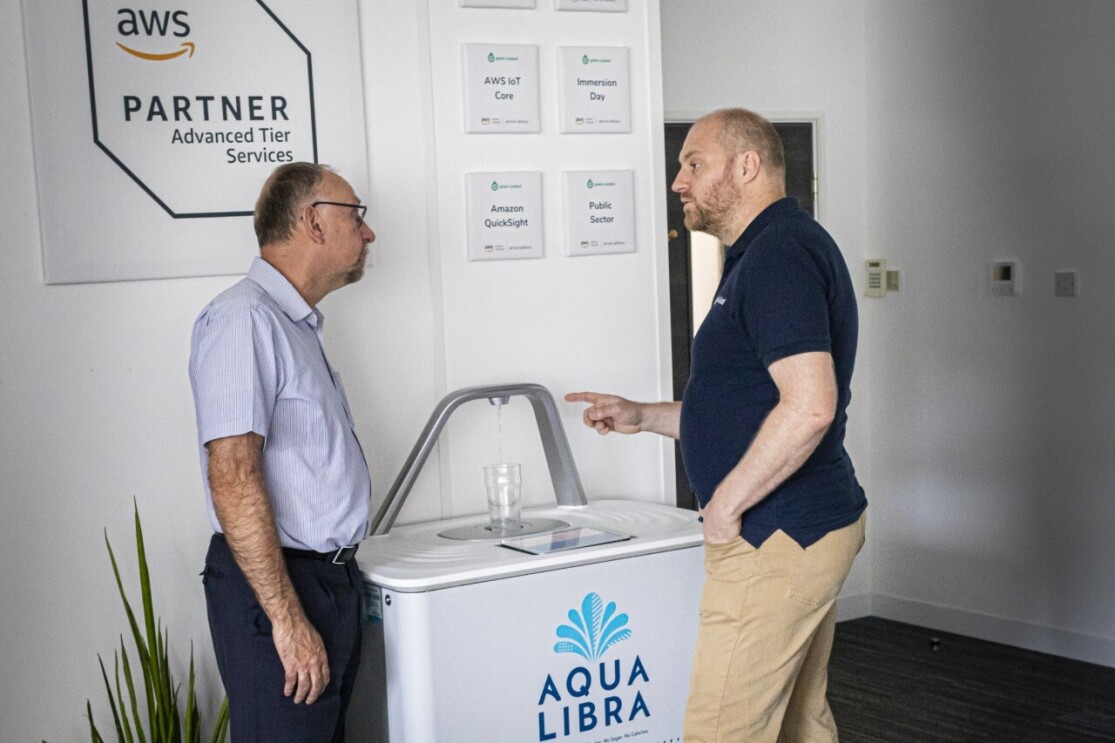Cloud technology is widely adopted in the UK by businesses large and small, and across many sectors. However, research commissioned by Amazon Web Services (AWS) and carried out by Public First found that the use of cloud technology was not equally distributed across regions of the UK, with some falling behind others in their digital capabilities.
AWS recognises that helping regional businesses upskill in cloud technology is a way to support the UK in levelling up digital growth across the country. The AWS Digital Innovation Programme for Small & Medium Businesses aims to help small and medium sized businesses (SMBs) reach their full potential in terms of productivity, cost savings, and turnover through adopting cloud technology and customer centric practices.
The programme has already hosted a series of workshops in the East of England, South of England, and Scotland, and is set to roll out nationally later this year. The workshops support local SMBs to streamline business processes and improve digital skillsets. Technical skills developed include how to utilise AWS tools and services, evaluate business architecture, and develop working models for products and services.
By providing hands-on support and practical advice, participating businesses will be able to explore the “art of the possible”, discover opportunities to drive growth, and boost digital innovation.
Rob Hodges
Digital Innovation Lead at Amazon Web Services and founder of the AWS Digital Innovation Programme for Small & Medium BusinessesThe workshops don’t just benefit SMBs by providing technical skills, they also promote agile ways of working and innovation. One workshop encourages businesses to assess the value of acquiring another company (and its software) against the option of developing its own software. The process upskills the businesses on how to decide if it is better to ‘build’ or ‘buy’ technology for their products, a common starting point for developing digital products.
The programme also gives businesses hands on experience with Amazon’s ‘working backwards’ methodology for developing new products, services, or experiences. ‘Working backwards’ is Amazon's innovation mechanism, and has been used to develop Amazon Prime, Amazon Kindle, AWS, Amazon Echo and Alexa, and Amazon Fresh.
To practice this, a ‘PR FAQ’ workshop encourages participating businesses to take a customer centric approach with deep consideration of customer needs. The businesses are asked to write a press release and frequently asked questions for a hypothetical solution, which helps them to consider exactly what their customers would want from a finished product, and develop a solution from there. This approach ensures the business is building the right product, and one its customers will love.
“We are excited to share Amazon’s ‘working backwards’ approach to innovation with hundreds of SMBs across the UK, and help them to apply it to their businesses. By providing hands-on support and practical advice, participating businesses will be able to explore the “art of the possible”, discover opportunities to drive growth, and boost digital innovation so they can invent on behalf of their customers”, said Rob Hodges, Digital Innovation Lead at AWS and founder of the programme. “We want to give businesses of all sizes the same opportunities as large enterprises to embrace the technology, mindset, and methodology to succeed.”
Changing times for timepiece repairs
RPAIR – an innovative scale-up which aims to match-up independent jewellery and watch repair workshops with customers – used Amazon’s process of working backwards to help refocus its objectives, ultimately enabling it to produce a tool better suited for its immediate market.
“AWS encouraged us to shift from a goal to develop fast with lots of different solutions for customers, to a much narrower focus that we could really excel at,” said Michael Jakobson, Founder, and CEO of RPAIR. “As a result, we challenged ourselves to identify what exact services our customers really needed. Then we worked our way backwards from there.

“AWS put us in touch with some of their expert partners who consulted with us for free. They spent hours with our CTO going through ideas and showing us how to implement them. They showed us how to be innovative in a flexible and streamlined way through AWS tools and cloud computing.
“Introducing more tech literacy to our industry could improve the sector for generations to come. Removing the dependency on walk-ins would really help a lot of our selling partners. Quite a lot of the partners we approach to join RPAIR don’t have a website and operate online from a personal email address. There is so much potential for improvement and future proofing, and these workshops and programmes can really help.”
Building confidence and capabilities
CitNOW was founded in 2008 as a way to enable customers to view and purchase cars without the customer needing to visit a showroom. Shortly after, it was introduced to workshops to drive trust and transparency by showing work needed on a vehicle while it's still on the ramp. Today, CitNOW has expanded further, providing a number of digital solutions to bridge the digital to physical gap between dealership and customer, and is part of the wider CitNOW Group portfolio of businesses.
For Robert Fyfe, Group Director of Product at CitNOW Group, one of the primary reasons to attend the workshop was to learn more about the processes AWS uses during product development.
“I found the discussion on whether it was better to ‘build’ or ‘buy’ technology fascinating,” said Fyfe. “It was a particularly engaging subject for me as it’s something we have recently experienced during our own development process.
 Robert Fyfe, Group Director of Product, CitNOW
Robert Fyfe, Group Director of Product, CitNOW“Another reason that the AWS programme appealed to us was the support we could get for approaching a new product concept we already had in mind. Ultimately, the workshops helped us to determine the best approach in the next iteration of this concept. The programme helped us feel confident in accurately weighing up if we should utilise what we learned in the AWS workshops and build this solution ourselves, or alternatively, pursue a well-planned acquisition.”
Changing mindsets and behaviour
Jonathan Custance, Founder and Owner of Green Custard – one of AWS’s partners who helps to run the workshops – promotes the importance of a ‘customer first’ mentality.
“The workshops are trying to make sure people start to think long-term and about the customer. It’s not about copying what AWS do. This mindset helps internal teams align and share an overarching goal. Otherwise, you risk having teams who are trying to develop or position products through short term thinking – maybe about their revenue goals, or other pressures they might have.”
 Two colleagues talking at the Green Custard Ltd offices
Two colleagues talking at the Green Custard Ltd officesJonathan believes challenging traditional business practices is equally as important as educating the participants on using AWS tools.
“Once participants begin to understand the importance of changing their approach, they start to see how technology and development can fulfil their objectives in a more streamlined way.”
This is echoed by Hodges, who believes that for regional economies to flourish, a move towards more digitally-friendly markets is necessary.
“The overall mission for the programme is inspired by the UK Government’s ‘Levelling Up’ agenda. Research conducted by Public First reveals that if we could boost the cloud prevalence in the North East to match that of London, it would help boost local productivity and wages by 2.6% - the equivalent of three years' worth of pay rises.”
Hodges believes that the innovation demonstrated by those participating in the workshops will inspire other SMBs to pursue their own cloud solutions, ultimately strengthening digital literacy and adoption throughout the UK.
“These workshops form one part of a solution to help regional areas to drive digital adoption and cloud technologies, and I’m excited to see the programme develop further.”
The next workshop takes place on 25October 2022 in partnership with Business West. Businesses in the Southwest of England can register their interest in the workshop if they want to take part.
Learn more about the AWS Digital Innovation Programme for Small & Medium Businesses.







